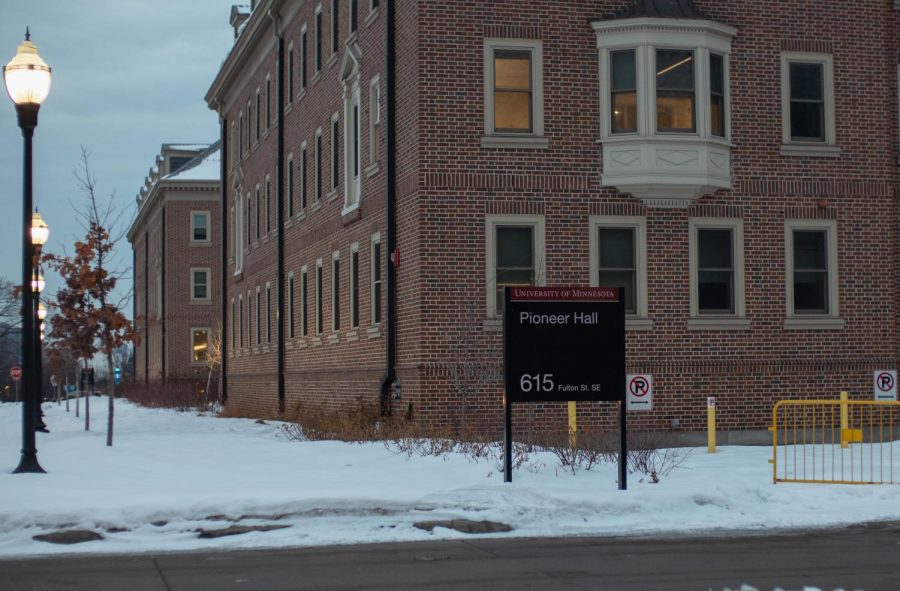This is not an easy time to be a champion of freedom of the press in America.
When O.J. and Elian are the country’s most prolific news makers, when reporters hastily accuse people like Richard Jewell, when local newscasts pander to our most moronic impulses and when mainstream news organizations hire Leonardo DiCaprio and Sarah Ferguson to stand in for their real reporters, it’s not surprising that mainstream news organizations are suffering. Nor is it surprising that a majority of Americans believe the press has too much freedom, as a recent Freedom Forum survey indicates.
With every ethical lapse, the public’s list of grievances grows, as does its tolerance for direct restraints of the press.
Too many people today see the news media, and freedom of the press, as the problem rather than the antidote. And with the end of the Cold War and the economy soaring, people no longer see government as the principal adversary of a free people. Today, it’s corporations and the media — and, worst of all, media corporations — that inspire the public’s mistrust.
The good old days of mass protests, draft-card burnings and fighting The Man are long gone. It’s economic power, not government power, that worries people today. Richard Nixon has been replaced by Bill Gates, George Wallace by Rupert Murdoch, Barry Goldwater by Ted Turner — these are today’s public enemies.
People still don’t like government. But they see government players as merely bumbling and self-serving, not dangerous.
Well, government officials are dangerous. The power they wield is more expansive, more lasting, and potentially more destructive than that possessed by even the greatest titans of industry.
With journalistic gaffes occurring so routinely, and with the country’s eyes so closely trained on the machinations of corporate players, the news media are now more vulnerable to government restraints than at any other time in the past several decades.
The abiding distrust and vigilance that Americans have traditionally exhibited toward government restraints of constitutional liberties seems to have waned. Today, when government officials disregard the First Amendment and restrict the press, the public shrugs. In earlier decades, people understood that the liberty of the press was part of a tapestry of rights that everyone had a stake in preserving. To the extent that the government could interfere with the autonomy of the news media, it could also intrude on the private domains of individuals.
That holistic understanding of constitutional rights has been replaced by more selective reading of the Constitution. People who fight for constitutional rights are not necessarily on the same team anymore, and more and more so-called civil libertarians are disassociating themselves from the system of free expression that they believe condones corporate media monopolization of public discourse.
The traditionally understood premise of the First Amendment is that truth will inevitably emerge — or at least it is more likely to emerge — when the public has access to a multitude of voices, and that to foster and protect this marketplace of ideas the government must not be allowed to determine which ideas are heard and which are not. That is why the First Amendment only protects the press from restrictions by the government, not corporations. Indeed, corporations, particularly media corporations, have a voice as well, and they should be permitted to participate in the marketplace of ideas as freely as any individual.
But contemporary critics have argued that the marketplace of ideas metaphor is inapt, because today’s media environment is dominated by large, corporate behemoths — Disney, Time Warner, AOL — and individual voices, contrary voices and minority voices are dwarfed. We need government, they argue, to restrict Big Media and to bring fairness and balance to the ideas marketplace.
There are plenty of valid reasons to be concerned about the increasing concentration of media ownership, the emphasis on profit-margins and diminution of editorial integrity. But those concerns should not distract us from our indispensable scrutiny of government.
If anyone doubts the power of government, or the tendency of unchecked power to be exercised in less-than-benevolent ways toward the press, just look at what is happening around the world.
In Russia, President Vladimir Putin has begun a crackdown on both the Russian and foreign press, raiding media companies’ offices, and even jailing a well-known media owner. In the Balkans, Yugoslav and Serbian government leaders have harassed, shut down and punished independent news organizations. In Peru, Colombia and many other countries, reporters work in fear of reprisals from government for unfavorable coverage. In an effort to forestall reformist movements in Iran, the government has shut down dozens of newspapers. And in so many other countries around the world, the press is the primary target of fragile governments and tyrannical political leaders trying to maintain their hold on power.
The news media are always the first concern of tyrants, because political leaders recognize that freedom of expression is the one right that is indispensable to the preservation of all other rights.
Of course, it’s easy for Americans to dismiss the actions of Putin and the Islamic fundamentalists in Iran — they are leaders of repressive societies, and comparisons with the United States don’t work.
But what happens in those countries is only different in degree from what happens every day in the United States. American city councils still deny newspapers the right to distribute papers to the public. Judges still issue gag orders on the press, despite decades of legal precedent prohibiting most prior restraints. State legislatures still call special hearings to require editorial writers to justify their opposition to public policy. Trial judges still ban reporters from their courtrooms in retaliation for unfavorable coverage. Government agencies still routinely deny reporters access to information to which they — and all citizens — are entitled. School boards still censor school newspapers and suspend student journalists for having the audacity to criticize school policies.
All of these things have happened in the past few months in this country, and many more restrictions like them occur routinely in all 50 states. These types of restrictions are less conspicuous and less severe than those imposed in some countries, but they are no less damaging to free expression and to the vitality of our democracy.
Repression on a small scale is still repression.
Yes, we need to increase our vigilance of the Ted Turners and Michael Eisners of the world, and we must not allow news organizations to be manhandled by their corporate owners, but we must never lose sight of the fact that it is the government that is the greatest threat to freedom.
Only the government can put you in jail. Only the government can censor the press. Only the government can deprive reporters and other citizens of their liberty. And, indeed, only government action is circumscribed by the words of the First Amendment itself — “Congress shall make no law … abridging the freedom … of the press.”
Erik Ugland is the Daily’s readers’ representative. His column appears alternate Mondays. He welcomes comments about the Daily or his columns at [email protected].









